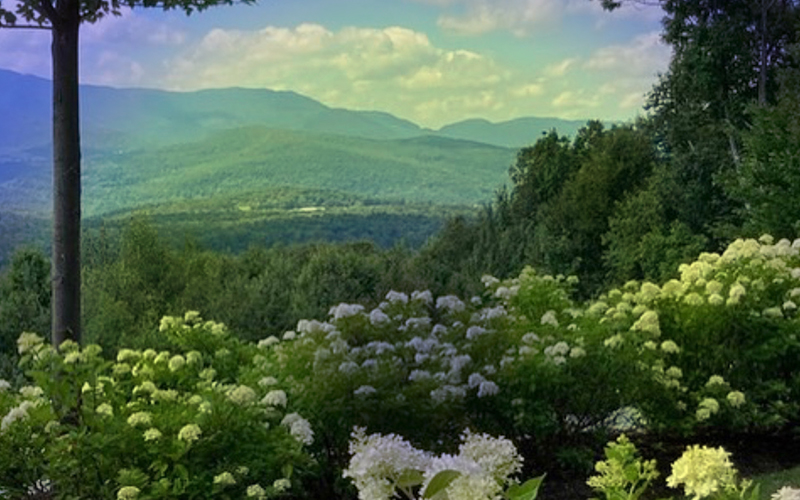Megan Moffroid, co-owner of Broadleaf Landscape Architecture in Waitsfield, has noticed an uptick in landscaping demand since the start of coronavirus.
“The industry as a whole is a lot busier,” said Moffroid. “We’re as busy as we’ve ever been with design work and new projects.”
While other industries lost steam with the start of coronavirus, the landscaping industry never missed a beat, since landscaping businesses were one of the first to open after an initial shut down in March of 2019. “We never slowed down,” said Moffroid. We are busier with new business, new clients and new projects. We were very busy last year also. There was an uptick immediately after coronavirus.”
Moffroid attributes much of client’s increased interest in landscape architecture services to the way the pandemic changed people’s lifestyles. “Existing clients, because of COVID, are spending more time here. They are home a lot more. Their lives have slowed down. They’re noticing more and enjoying their properties more,” said Moffroid. “I have so many balls in the air. I’m doing my best to get everything done.”
Moreover, Moffroid thinks that since people haven’t been traveling, they have more money to spend on landscaping.
In regards to what kind of work people are actually doing, it seems that they are pursuing a variety of projects, from installing hot tubs, renovating patios and creating outdoor entertaining spaces, to building outdoor kitchens, pizza ovens and more.
Moffroid has also noticed an uptick in the desire for “edible” landscapes. People are planting orchards, fruit shrubs and entire vegetable gardens.
However, with a growing interest in landscaping comes a growing problem: a lack of materials. “There have been shortages of compost, mulch and stone,” said Moffroid.
Moreover, the increased demand for materials has put demand on truckers to transport more, which caused transportation issues. “They didn’t have enough trucks, so there have been scheduling challenges. Nobody was prepared for this increased demand for materials,” said Moffroid.
Luckily, Moffroid found her clients to be very patient. “Many of them understand these supply problems from running their own businesses,” she said.
All in all, Moffroid finds the pandemic-influenced shift to outdoor living to be a good thing. “People are home. Their patterns have changed. Their habits have changed. I don’t know if they’re going to change back. They’ve learned to appreciate slowing down and being outdoors,” she said. “I think it’s a healthy trend and I hope people continue to tend their little pieces of the earth in a more proactive way. It’s good for everybody if we all get our hands in the dirt.”







